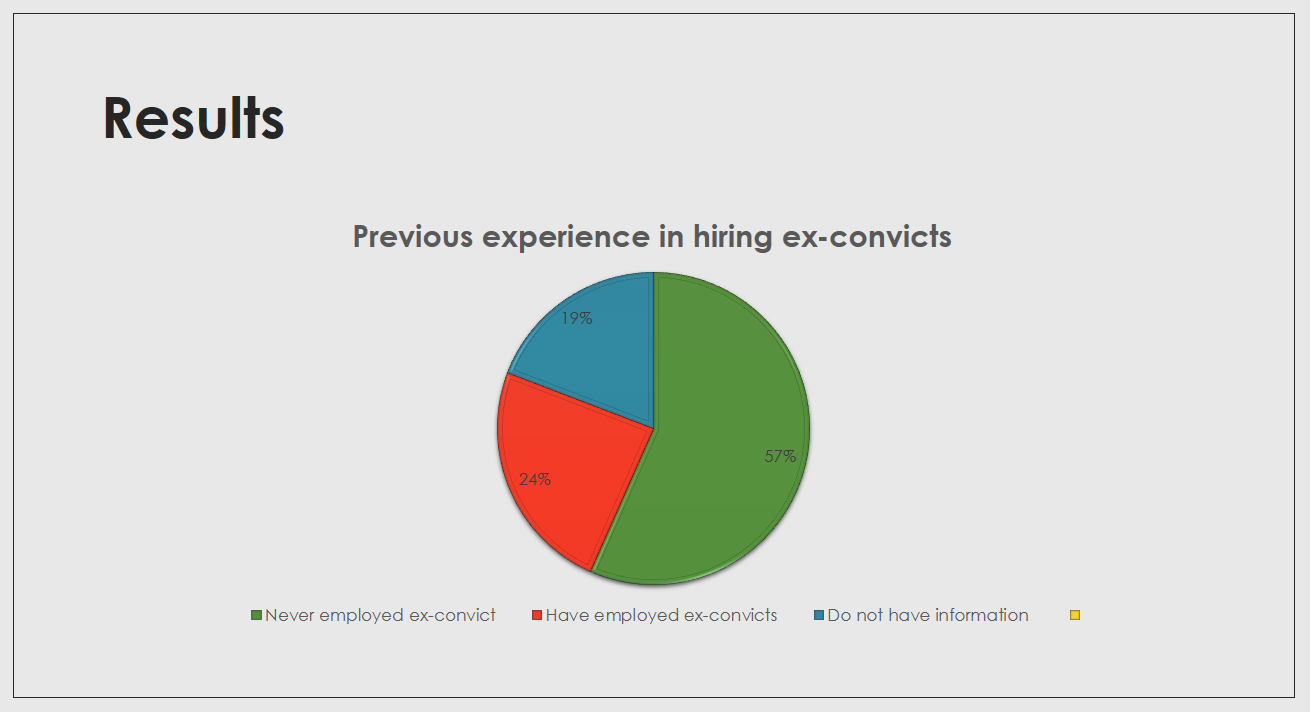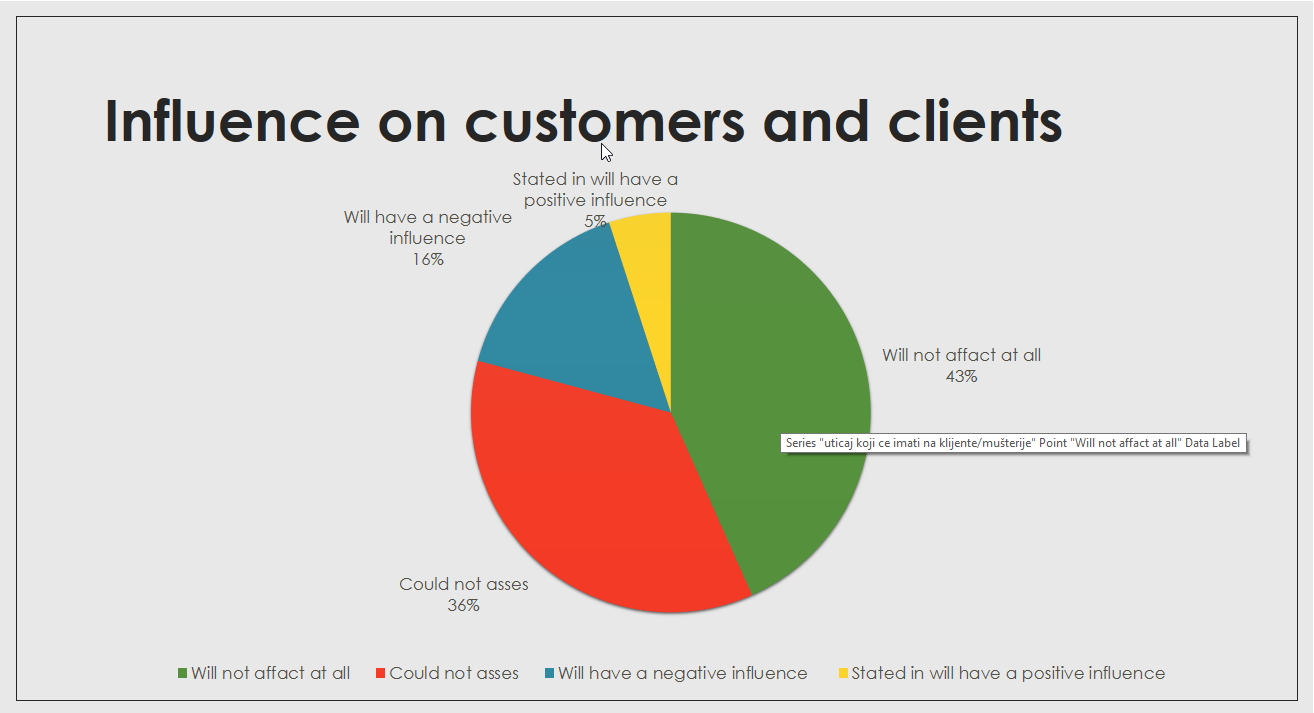Housing, health care, support for family and friends are key factors for successful rehabilitation of ex-convicts. Among these, employment stands out
To get an insight into the opinion of employers on hiring ex-convicts, the EU financed a project entitled Improving capacities of the Prison Administration in the Area of Alternative Sanctions, Post Penal Care and Healthcare in Serbia . The project carried out a nationwide survey of owners of small- and medium-sized enterprises.

The survey was created by the project’s team of experts and filled out by a total of 120 business owners working in the field of commerce, production, and hospitality. Even though 24% of respondents have a former convict as an employee, what is encouraging is that 57% of surveyed employers stated that previous working experience and quality of work is what would affect their decision to hire an ex-convict, while 55% would consider hiring an ex-convict, provided they get information on their behaviour while serving the sentence.
Among 17 employers who have had a positive experience with hiring former offenders is an owner of a small enterprise from Sombor. She pointed out that her experience with working with offenders was perfect. Furthermore, she described the employed offenders as highly motivated and dedicated employees who showed a higher level of loyalty towards the employer than other employees. She also mentioned that employing ex-offenders left no negative impression on her clients, nor it had any negative impact on the company.

However, almost all participants in the survey said that the decision to hire an ex-offender would depend on the criminal offence for which they had been convicted. In this context, the employers said they would not hire people convicted of sexual and other violent crimes, as well as re-offenders.
In conclusion, a key finding from the survey is that ex-convicts are a vulnerable group when it comes to employment, even though the existing laws and regulations do not recognise them as such. The statistics from certain European countries show that the highest rate of those who get back to the life of crime (i.e., recidivism) happens within the first months following their release, especially if an individual is unable to provide for themselves. This goes to show how important timely re-socialisation is for their successful rehabilitation. Appropriate post-penal care and de-stigmatisation of people who served time in prison are the key elements for keeping them away from the life of crime, which to a large extent influences the safety of the entire community. And as an entrepreneur from Donji Milanovac said: “Many people worked in my enterprise and only two of them were offenders. That is not too much. Everybody deserves a chance”.
The project Improving capacities of Prison Administration in the Area of Alternative Sanctions, Post Penal Care and Healthcare in Serbia is a result of cooperation of the EU and the Serbian Administration for Execution of Criminal Sanctions and its entire budget of 1.440.000 Euros is secured through a European Union’s donation within IPA. It runs through 2021 and its main objective is to support capacity building of the Prison Administration in terms of further development of alternative sanctions, further development of post-penal care of ex-convicts through effective collaboration of all stakeholders and improving healthcare in prisons throughout Serbia.
Further info




